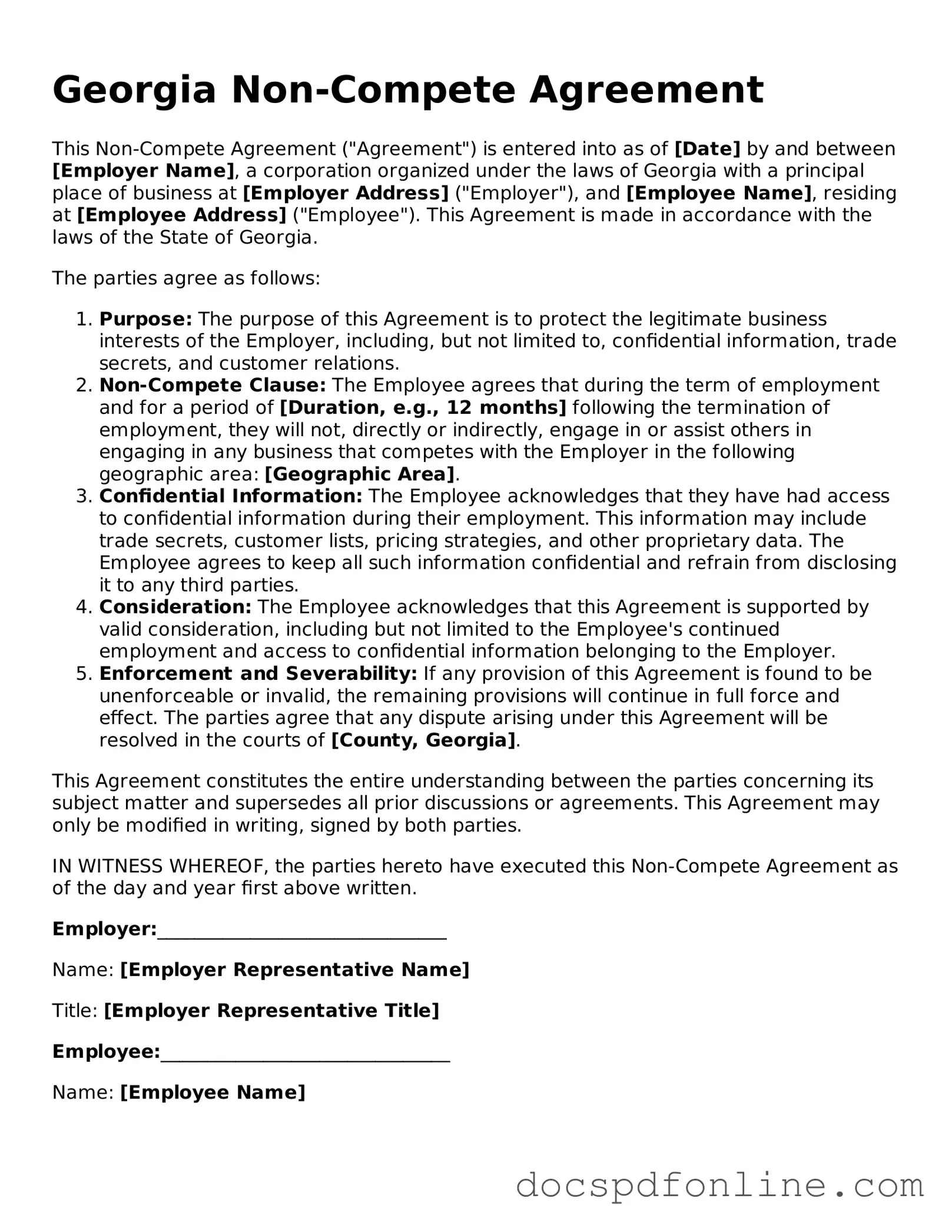Georgia Non-Compete Agreement
This Non-Compete Agreement ("Agreement") is entered into as of [Date] by and between [Employer Name], a corporation organized under the laws of Georgia with a principal place of business at [Employer Address] ("Employer"), and [Employee Name], residing at [Employee Address] ("Employee"). This Agreement is made in accordance with the laws of the State of Georgia.
The parties agree as follows:
- Purpose: The purpose of this Agreement is to protect the legitimate business interests of the Employer, including, but not limited to, confidential information, trade secrets, and customer relations.
- Non-Compete Clause: The Employee agrees that during the term of employment and for a period of [Duration, e.g., 12 months] following the termination of employment, they will not, directly or indirectly, engage in or assist others in engaging in any business that competes with the Employer in the following geographic area: [Geographic Area].
- Confidential Information: The Employee acknowledges that they have had access to confidential information during their employment. This information may include trade secrets, customer lists, pricing strategies, and other proprietary data. The Employee agrees to keep all such information confidential and refrain from disclosing it to any third parties.
- Consideration: The Employee acknowledges that this Agreement is supported by valid consideration, including but not limited to the Employee's continued employment and access to confidential information belonging to the Employer.
- Enforcement and Severability: If any provision of this Agreement is found to be unenforceable or invalid, the remaining provisions will continue in full force and effect. The parties agree that any dispute arising under this Agreement will be resolved in the courts of [County, Georgia].
This Agreement constitutes the entire understanding between the parties concerning its subject matter and supersedes all prior discussions or agreements. This Agreement may only be modified in writing, signed by both parties.
IN WITNESS WHEREOF, the parties hereto have executed this Non-Compete Agreement as of the day and year first above written.
Employer:_______________________________
Name: [Employer Representative Name]
Title: [Employer Representative Title]
Employee:_______________________________
Name: [Employee Name]

